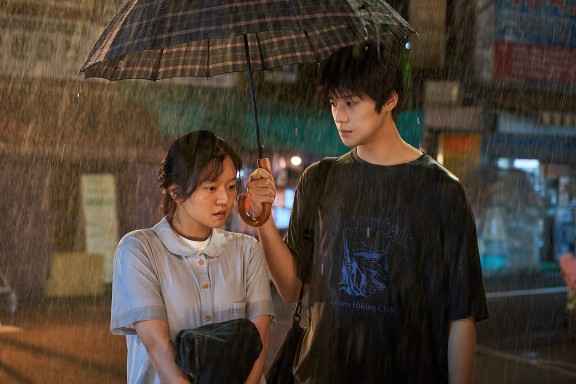The anticipation for Grand Theft Auto 6 is palpable, but for some fans, the prospect of Grand Theft Auto 7 feels like a distant dream—so distant, in fact, that they believe it may not arrive within their lifetimes. Given Rockstar Games’ increasingly lengthy development cycles, with Grand Theft Auto 5 releasing in 2013 and Grand Theft Auto 6 not arriving until 2026, some fans speculate that Grand Theft Auto 7 could be a decade or more away, potentially pushing its release into the late 2030s or beyond. This sentiment, while tinged with humor, reflects the growing complexity and time-intensive nature of Rockstar’s blockbuster titles. Yet, a former developer’s insights suggest that the future of the franchise could be shaped by a revolutionary force: artificial intelligence.
In a revealing interview on the KIWI TALKZ podcast, Obbe Vermeij, a former technical director at Rockstar Games, shared bold predictions about how AI could transform the development of Grand Theft Auto 7. Vermeij, who contributed to iconic titles such as Grand Theft Auto: Vice City, Grand Theft Auto: San Andreas, and Grand Theft Auto IV during his tenure from 1995 to 2009, believes that AI will significantly reduce the production costs of Grand Theft Auto 7 compared to its predecessor, Grand Theft Auto 6, which is poised to be the most expensive video game ever created.
Vermeij’s insights come at a time when Grand Theft Auto 6 is generating unprecedented anticipation, with its budget reportedly exceeding $1 billion, potentially reaching as high as $2 billion according to some estimates. This staggering figure reflects the game’s meticulous, hand-crafted approach, involving thousands of developers and years of production. However, Vermeij argues that the gaming industry is on the cusp of a technological revolution, with AI set to streamline many labor-intensive tasks that drive up costs.
“I think there’s not gonna be a bigger game than GTA 6 because a lot of that stuff is going to be taken over by AI whether we want it or not,” Vermeij stated during the KIWI TALKZ interview. “So, I think these banks of artists that are just building massive maps or massive cutscenes, I think some of that will be taken over by AI in the next, you know, five years or so.” This prediction underscores his belief that Grand Theft Auto 6 will mark the peak of traditional, labor-heavy game development, with AI set to transform the process for future titles.
Vermeij elaborated on how AI could revolutionize specific aspects of game production, particularly in creating cutscenes and environments. “I would imagine that let’s say you do a cut scene, you could just, uh, you know, all the characters in the cutscene could just be rendered by an AI, including the conversation, if you just describe the scene. That could be your first pass of a cutscene,” he explained. He emphasized that while AI would handle the “bulk of the work,” human artists would still play a critical role in refining these elements. “You’ll still have artists to do like, tons of artists to do the higher-level creative stuff, and there would be glitches to fix and all that stuff. But I think the bulk of the work is probably going to be replaced,” he added.
The former technical director also highlighted how AI is already reshaping the role of programmers in game development. “When I started, programmers were like a third of a typical team and now it’s maybe 10, 15%. And with AI, even more work will be automated,” Vermeij noted. He pointed out that tasks like physics and collision detection, once handled manually by programmers, are now integrated into game engines, and AI is expected to further reduce the need for human intervention in these areas.
Vermeij’s vision extends beyond cost savings. He sees AI-driven development as an opportunity to diversify the gaming landscape. “If you can make games cheaper, you can have more niche settings, and I think that would be much more interesting for gamers,” he said. He suggested that lower production costs could enable studios to explore unique concepts, such as games set in historical battles, the life of figures like Albert Einstein, or space exploration, which are often deemed too risky due to high budgets.
The potential for AI to reduce costs is particularly significant given the long development cycles of modern Grand Theft Auto titles. Vermeij acknowledged this reality, stating, “My prediction is GTA 7 will be cheaper to make than GTA 6. I think so. We’ll have to wait 15 years to see if I’m right or not because that’s how long it takes to make these games.” This timeline, while speculative, aligns with fans’ concerns about the distant horizon for Grand Theft Auto 7.
Rockstar Games is known for its meticulous, hand-crafted approach to game development, particularly in creating expansive open-world maps and detailed cutscenes. However, Vermeij’s comments suggest that Grand Theft Auto 7 could mark a shift toward a leaner, AI-assisted model. His prediction aligns with emerging technologies, such as Nvidia’s AI-driven NPC systems, which demonstrate how AI can generate realistic characters and interactions, potentially streamlining pre-production and setup phases.
It’s important to note that Vermeij’s comments are speculative, as he left Rockstar Games in 2009, and no official announcement regarding Grand Theft Auto 7 has been made by the studio. Grand Theft Auto 6 is set to release on May 26, 2026, for PlayStation 5 and Xbox Series X/S, following a delay from its initial Fall 2025 target to ensure the game meets Rockstar’s high-quality standards. Whether Vermeij’s vision of an AI-driven future for Grand Theft Auto 7 comes to fruition remains to be seen, but his insights highlight the transformative potential of AI in the gaming industry.







